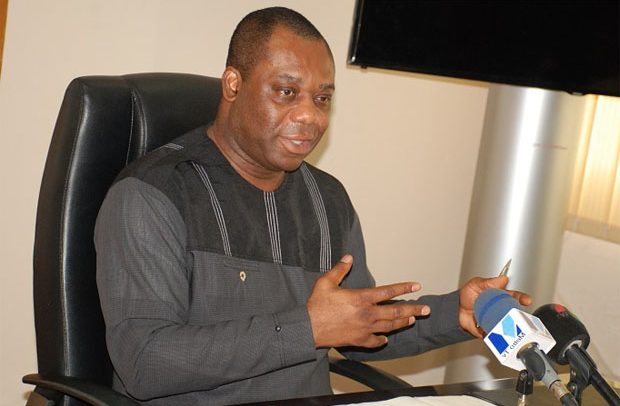Dr Mathew Opoku Prempeh – Minister of Education
MINISTER OF Education, Dr Mathew Opoku Prempeh has dismissed reports that government is seeking covertly to take control of public universities through the Universities Bill it has developed.
The Minister was reportedly speaking in an interview with online news portal, abcnews.
According to him, the move to pass the bill into law is not to control universities nor stifle academic freedom as suggested but rather to bring together under one policy all public universities to allow for a better regulated and properly defined scope of operations as has been done in other countries across the world.
He expressed the belief the bill when passed into law will improve tertiary education in the country and set it at par with other universities globally.
“The President has given his word to all Vice Chancellors, when they met him and assured him that the common admission platform will be ready to use in the 2021 academic year,” he said.
He added that “the Vice Chancellors paid a courtesy call on the President and the President stated emphatically that he as a president and his government has nothing to do with stifling academic freedom. In fact, this draft bill is the first bill in this country to try and define what we mean by academic freedom using examples of how other nations have developed it. If it has to be improved, we are hoping for that but the government will not and must not and does not intend in any way to stifle academic freedom.”
The Minister also clarified that the tertiary bill is aimed at bringing all universities under one law to correct the situation where some universities operated under Acts that were contradictory to the constitution.
According to him, the bill will improve the governance, leadership and accountability of public universities.
The new bill, he said, was yet to be finalised, adding that government is open to all suggestions and inputs from stakeholders particularly university unions, lecturers and academics.
He said government has stated its position but is more than happy toengage any stakeholder on matters related to the bill in a bid to improve it and get the buy in of all relevant parties.
“The draft bill was circulated to all the universities and the unions with the caveat that they should let us have the suggestions to improve the bill before we can formally take it to cabinet before we take it to parliament and get it passed,” he noted.
He added that “so it is a stakeholder consultation that we are doing. Government has declared its intentions fairly, it hasn’t hidden anything, it is open to suggestions, it is open to discussions on the various clauses and it is opened its views.”
The bill which is yet to be presented to parliament has already caused the Ministry to receive some backlash from the heads of some universities and lecturers.
A former Vice Chancellor of the University of Ghana, Professor Ivan Addae Mensah, has joined the mounting opposition to the draft universities bill describing it as “dangerous and totally unnecessary”.
He said the bill and its proposals are backward and will take universities back to the 60s.
“I think this bill is very dangerous and totally unnecessary. The constitution of Ghana seeks to protect tertiary institutions from government interference. If the bill says the President can appoint the Chancellor it means he can disappoint the Chancellor. In all, the President can appoint about 5 council members and that is dangerous,” he said.
The Minority has described the proposals as worrisome. According to them, the bill, which is yet to be laid in Parliament has severe consequences as far as academic freedom and the autonomy of universities are concerned.
Minority Spokesperson on Education, Peter Nortsu asked for more voice like that of Prof. Gyampo against the draft bill.
A DGN Online Report

